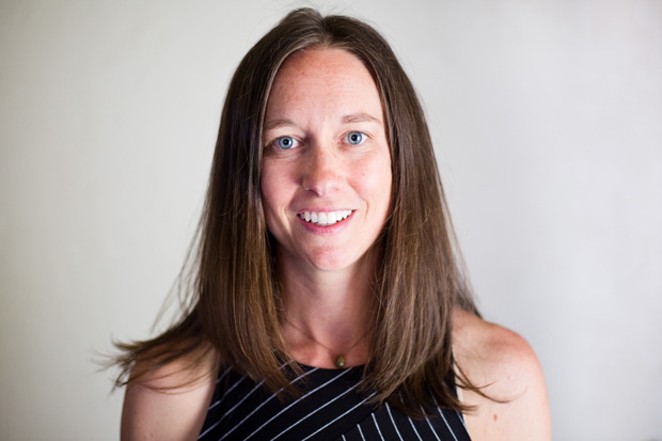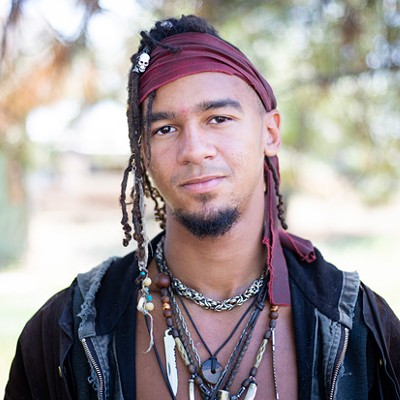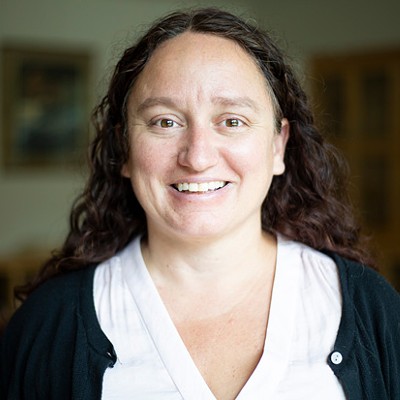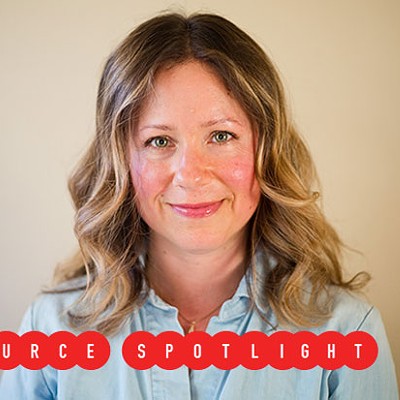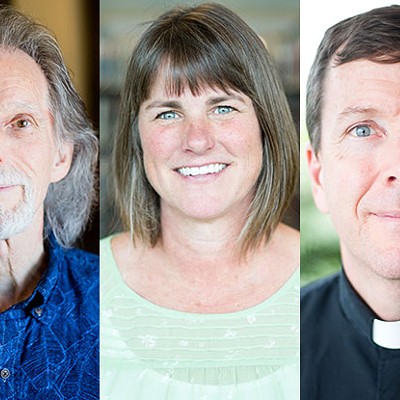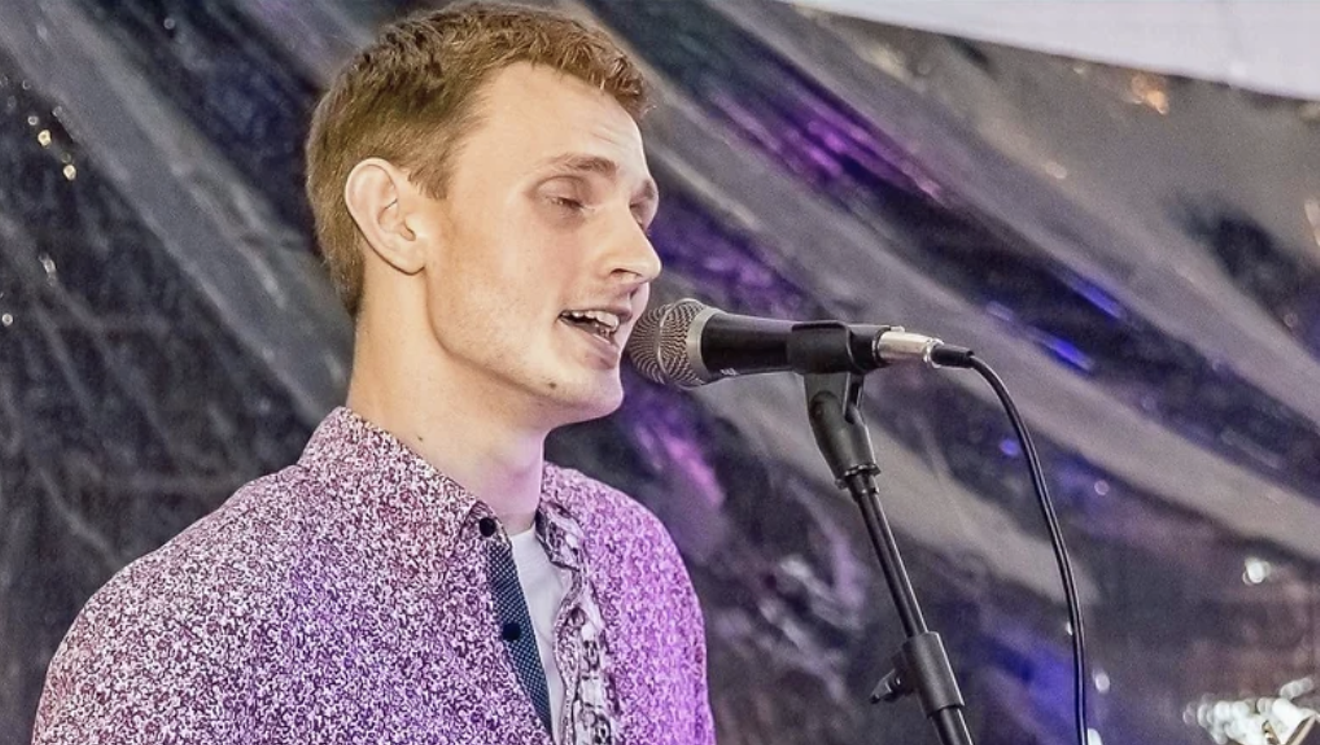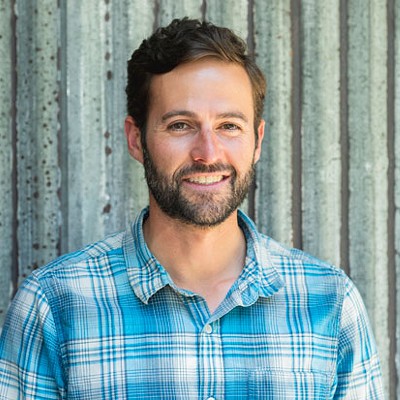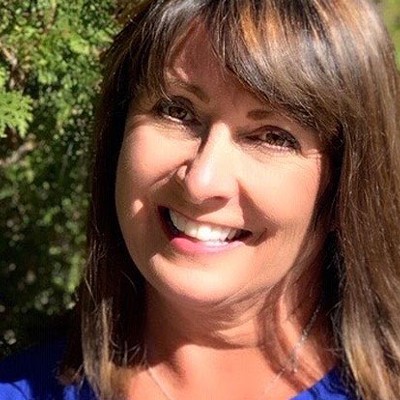Editor's note: Joshua Langlais is a local photographer and the creator of A Community Thread, a project for which he interviews folks on the subject of community, its importance and how we function as individuals within it.
This is an excerpt from his interview with Ashlee Davis in May. Ashlee is a middle school counselor and describes herself as lighthearted and compassionate and an advocate for kids and teenagers.
A Community Thread: What breaks your heart or concerns you in a way that affects you personally? And what motivates you to do something about it?
Ashlee Davis: It's a lot of little things that break my heart. The thing that probably I am faced with every day is a lack of tolerance and a lack of compassion. I don't think it's apathy; sometimes it's just accepted as the status quo.
Working in a middle school, I think sometimes when we see a lack of tolerance it's often met with, Boys will be boys or That's how girls treat each other is with drama and meanness. That breaks my heart, because I don't believe that's the case. I believe that people are capable of more and that we have to expect more from each other—to have more compassion and tolerance and empathy for each other. I have intolerance for lack of tolerance and compassion.
ACT: As you make your way through your daily routines, what do other people mean to you?
AD: They mean connection and they mean that we're kind of all in this together. It's cool that we don't have to go through life alone. And I think we need each other. I really do. I like that connection to other people because it's how we learn. We see ourselves in others. We see a need.
“We have to teach our kids about how to talk about gender and sexuality and race and ethnicity, and conversations that make people uncomfortable that we don’t know how to talk about.”—Ashlee Davis
tweet this
ACT: What does community mean to you? And what does it mean to you to be part of a community with opinions or agendas that go against yours?
AD: Being aware and having your eyes open is oftentimes painful and hard. It's so much easier to have your head in the sand and not notice things around you and not put a lot of thought into the human behind the bill passed, the law passed, the human behind the mistake, the human behind the future wall. It's easier to not look at that. As humans we have a tendency to protect ourselves—to just not pay attention to those things. Because it's hard and it's uncomfortable. We also want to be able to control and fix. And oftentimes we can't control and fix those bigger issues or that pain.
But I think one of the most beautiful things about humans that separates us from any other species is that we have the ability to feel deeply. And that even means hurting and sadness and all those uncomfortable things that we want to avoid. But that's what brings us together. That's what connects us.
That's what community means to me is that I can empathize or imagine or feel for or think about someone on the other side of the ocean that is living in a developing country underneath a piece of cardboard. And I can think about that mom from El Salvador that is sending her child to the United States and that pain that she must feel. It's not solving the problem just thinking about it and knowing that we're all connected, but community is having your eyes open and your heart open and knowing and understanding what people are going through around the globe and right here under our feet in Bend, Oregon.
No matter where you live or what your experience is, there are certain things we can't escape from. We can't escape from pain; we can't escape from struggle. And that's community. We can all find joy and happiness and love and all of those beautiful pieces, as well. If I'm gonna live in this world with people that are different than me, it helps to understand why. Trying to understand the why behind it and 90% of the time recognizing that people respond and react in the ways that they do because they're trying to protect something that's valuable to them. And it doesn't make it right, but it just helps build that understanding.
We have to talk about these really hard conversations in schools. We have to teach our kids about how to talk about gender and sexuality and race and ethnicity, and conversations that make people uncomfortable that we don't know how to talk about. And they want to. They want to know those pieces. I think it's possible. I believe in humanity. But it takes work. It's hard.
Read or listen to the entire interview at acommunitythread.com.

